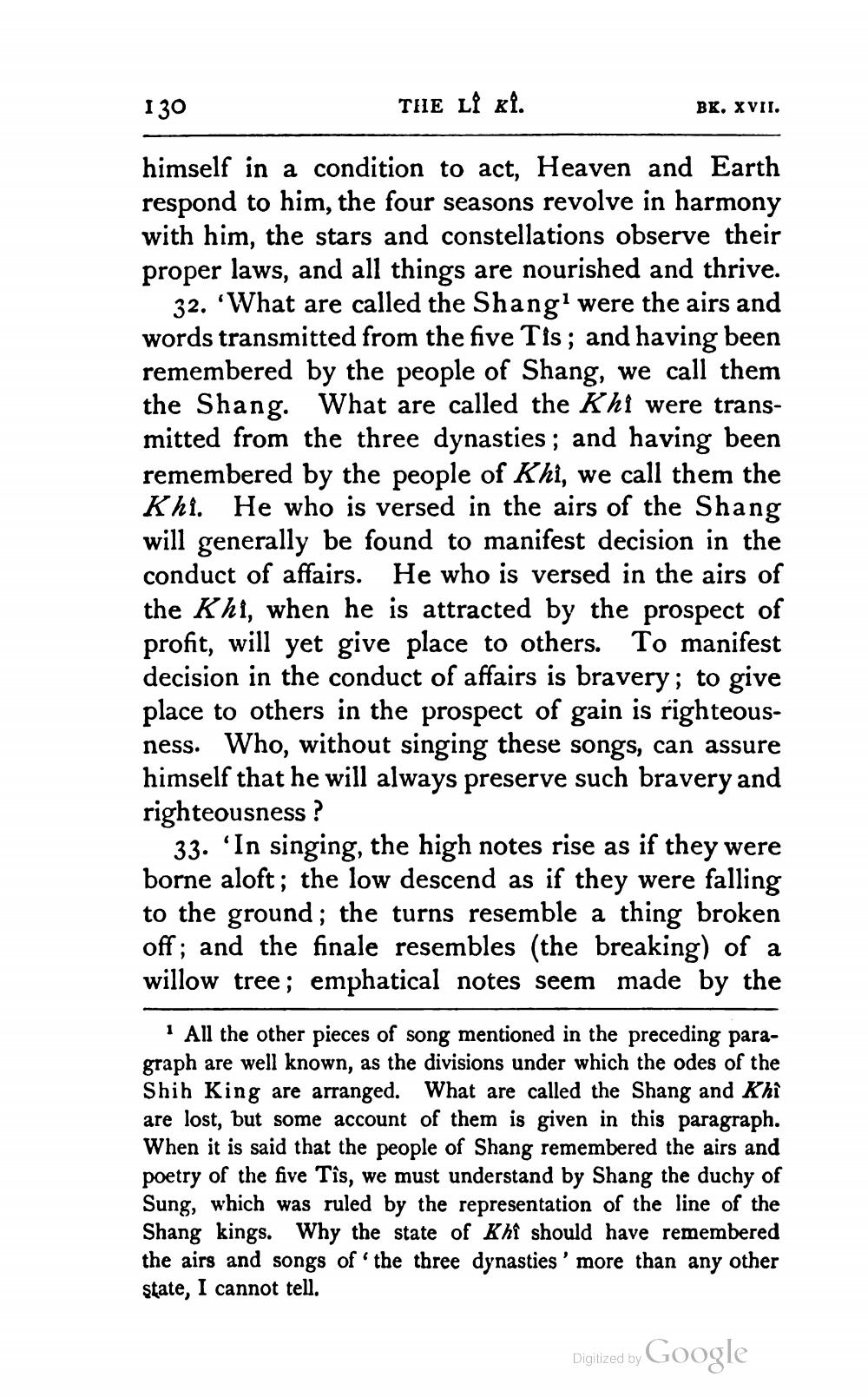________________
130
THE Lİ Kİ.
himself in a condition to act, Heaven and Earth respond to him, the four seasons revolve in harmony with him, the stars and constellations observe their proper laws, and all things are nourished and thrive.
32. 'What are called the Shang1 were the airs and words transmitted from the five Tis; and having been remembered by the people of Shang, we call them the Shang. What are called the Khi were transmitted from the three dynasties; and having been remembered by the people of Khi, we call them the Khi. He who is versed in the airs of the Shang will generally be found to manifest decision in the conduct of affairs. He who is versed in the airs of the Khi, when he is attracted by the prospect of profit, will yet give place to others. To manifest decision in the conduct of affairs is bravery; to give place to others in the prospect of gain is righteousness. Who, without singing these songs, can assure himself that he will always preserve such bravery and righteousness?
33. 'In singing, the high notes rise as if they were borne aloft; the low descend as if they were falling to the ground; the turns resemble a thing broken off; and the finale resembles (the breaking) of a willow tree; emphatical notes seem made by the
BK. XVII.
1 All the other pieces of song mentioned in the preceding paragraph are well known, as the divisions under which the odes of the Shih King are arranged. What are called the Shang and Khì are lost, but some account of them is given in this paragraph. When it is said that the people of Shang remembered the airs and poetry of the five Tîs, we must understand by Shang the duchy of Sung, which was ruled by the representation of the line of the Shang kings. Why the state of Khi should have remembered the airs and songs of the three dynasties' more than any other state, I cannot tell.
Digitized by
Google




